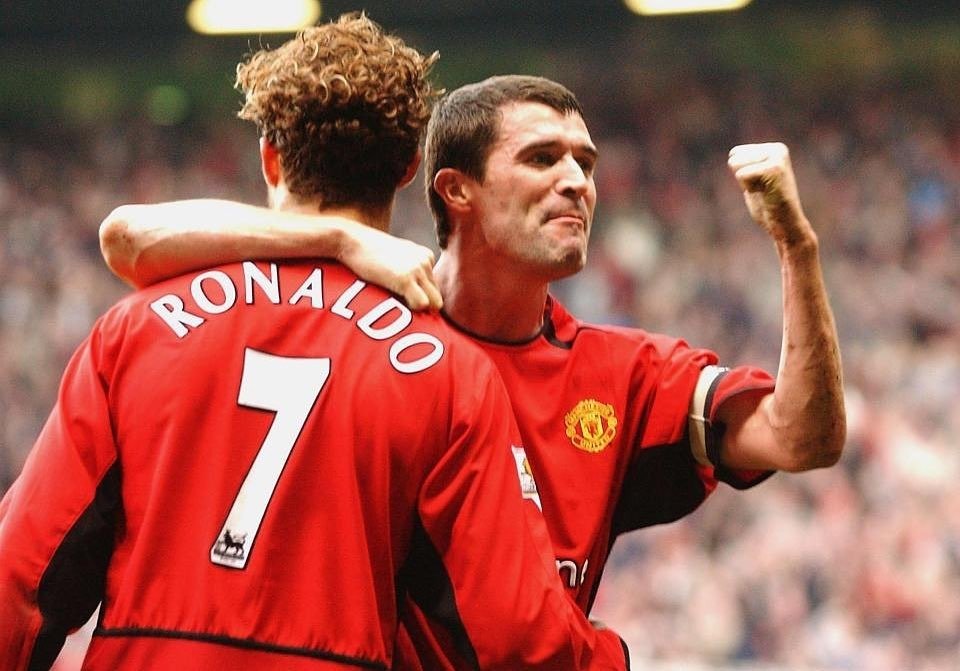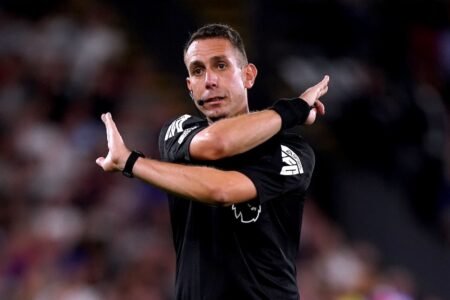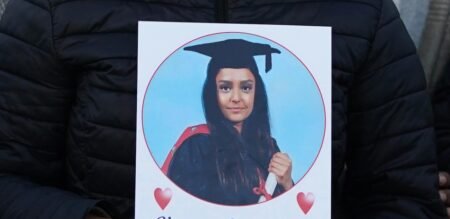Roy Maurice Keane, born August 10, 1971, in Cork, Ireland, has left an indelible mark on the sport. Revered for his drive, leadership, and forthright personality, Roy Keane’s life and career are marked by achievements as a player, coach, and media figure, alongside a range of controversies and unforgettable moments.
Early Life and Roots
Keane grew up in a working-class Irish family; his father, Maurice, supported the family with various jobs. Surrounded by sport in Cork, Roy honed competitive traits through football and boxing, displaying fierce ambition and resilience early on. Keane’s athletic prowess was evident from his youth, as he excelled with Rockmount AFC before moving into professional football.
Family support played a central role in his journey. Married to Theresa Doyle since 1997, Keane is a father to five children, preserving privacy and stability off the pitch.
The Ascent to Greatness
Early Career
Keane began with Rockmount AFC and progressed to Cobh Ramblers, where his performances caught the eye of scouts. In 1990, Nottingham Forest, managed by the great Brian Clough, signed Keane. There, he developed his trademark tenacity and tactical discipline, evolving into a robust box-to-box midfielder.
Manchester United Era
Keane’s move to Manchester United in 1993, for a then UK record fee of £3.75 million, launched him into superstardom. Under Sir Alex Ferguson, Keane amassed 480 appearances and scored 51 goals. His leadership as captain, from 1997 to 2005, was pivotal in United’s successes, including:
- 7 Premier League titles
- 4 FA Cups
- Champions League in 1999 (he was instrumental in the legendary semi-final comeback against Juventus, despite missing the final due to suspension)
- Multiple Community Shield victories
Sir Alex Ferguson described Keane as the finest player he ever managed, epitomising determination, tactical intelligence, and unwavering standards. Keane’s toughness drove United’s dominance, and his legacy remains etched in Old Trafford’s history.
Celtic and Retirement
Keane ended his playing career at Celtic, adding the Scottish Premier League and League Cup to his honours, before retiring in 2006.
Republic of Ireland: International Impact
Keane represented Ireland for 14 years, many as captain. He inspired the national team but also brought drama, notably at the 2002 World Cup, when a confrontation with manager Mick McCarthy led to his abrupt departure, a moment immortalised as the “Saipan incident”.
Management and Coaching Roles
After playing, Keane transitioned to management. He took charge of Sunderland in 2006, steering the club from 23rd in the Championship to Premier League promotion as champions. He later managed Ipswich Town and held assistant roles for the Republic of Ireland, Aston Villa, and Nottingham Forest.
Keane’s leadership style remained uncompromising, marked by high expectations and exacting standards, both celebrated and critiqued.
Punditry and Public Persona
Keane reinvented himself as an outspoken pundit for networks like ITV and Sky Sports. His acute tactical insights and direct critiques frequently make headlines, reflecting his playing-day persona: honest, passionate, and never afraid to challenge norms. In recent years, Keane has criticised Manchester United’s decline, calling for greater accountability and spirit, views that resonate widely in the football community.
Roy Keane’s Statistics and Records
At Manchester United
| Career Statistic | Value |
|---|---|
| Appearances | 480 |
| Goals | 51 |
| Premier League Titles | 7 |
| FA Cups | 4 |
| Champions League | 1 (1999) |
| Captaincy | 1997–2005 |

Keane was renowned for his box-to-box versatility, defensive skills, timely goals, and precise distribution. His 51 United goals include crucial late strikes and match-winning moments that are still celebrated.
Net Worth and Earnings
As of 2025, Roy Keane’s net worth is estimated at £50 million, owing to decades of football success, management, punditry contracts, book royalties, and commercial partnerships. His ongoing influence in the media continues to bolster his earnings.
Additional Income Data
Controversies and Legacy
Keane’s career is punctuated by high-profile controversies:
- The 2002 Saipan incident ended his World Cup campaign and highlighted his uncompromising nature.
- His departure from Manchester United in 2005 followed blunt criticism of teammates on MUTV, which led to the termination of his contract.
- Fierce on-field clashes, such as the infamous confrontation with Alf-Inge Håland, reinforce his reputation as one of football’s most formidable competitors.
Yet, he is admired for his honesty, self-discipline, and refusal to settle for less than excellence, qualities that define both his brilliance and divisiveness.
Personality, Reputation, and Enduring Influence
Keane is widely acknowledged for his willpower, authenticity, and candour. Known in football circles for demanding perfection, his presence inspired teammates and intimidated opponents. His autobiography, “Keane,” details his intense drive and the personal challenges of elite sport.
On and off the field, Keane’s legacy is one of authenticity and unwavering standards. He remains a source of inspiration to aspiring players, managers, and fans.
Major Honours and Achievements
- 7 Premier League titles
- 4 FA Cups
- UEFA Champions League winner (1999)
- Scottish Premier League & League Cup at Celtic
- FIFA 100 induction (2004): Recognised among the world’s greatest living players
- Premier League Hall of Fame (2021)
Recent News: Still Shaping Football
Keane remains at the heart of football discussion. In 2025, his remarks criticising Manchester United’s acceptance of “mediocrity” went viral, reflecting his consistent standards and ongoing influence in the media.
Key Differences Between the Article Sources
- The Manchester United profile foregrounds Keane’s stats, records (480 appearances, 51 goals), and his immense stature within the club, centred on his on-field contributions and legendary status.
- Biography articles cover personal background, controversies, management career, and media persona, offering a broader context on Keane’s life, personality, and impact outside football stats.
- Only the biographies detail family, early life, management at Sunderland/Ipswich, and recent media roles, whereas the United profile is tightly focused on match records, goals, and tributes from club legends.
FAQs About Roy Keane
What is Roy Keane’s full career goal tally for Manchester United?
Keane scored 51 goals in 480 matches for Manchester United.
When was Roy Keane Manchester United captain?
Keane captained Manchester United from 1997 to 2005.
What is Roy Keane’s net worth in 2025?
Roy Keane’s net worth is estimated to be £50 million as of 2025, comprising earnings from sports, media, and commercial ventures.
Why was Roy Keane sent home from the 2002 World Cup?
Roy Keane was sent home after a passionate dispute with manager Mick McCarthy over Ireland’s training standards, in what is now called the Saipan incident.
What roles has Roy Keane held after retirement?
Keane became a manager at Sunderland and Ipswich, held assistant coaching roles, and is now a leading pundit for ITV and Sky Sports.
What was Keane’s record transfer fee to United?
Manchester United signed Roy Keane for £3.75 million in 1993, a record at the time.
Which honours make Roy Keane one of the game’s greats?
Keane’s honours include 7 Premier League titles, a Champions League, 4 FA Cups, Scottish League medals, inclusion in FIFA 100, and Premier League Hall of Fame.
Who is in Roy Keane’s family?
Keane is married to Theresa Doyle with five children, maintaining a close family circle away from football.
Why did Roy Keane leave Manchester United?
Keane left Manchester United in 2005 following outspoken criticism of teammates and management, resulting in an abrupt termination of his contract










